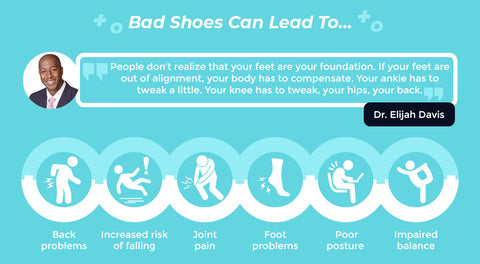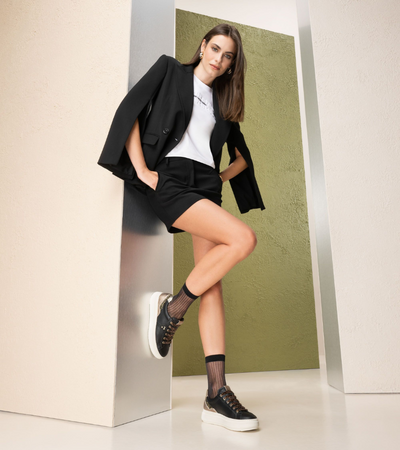How to Pick the Best Work Shoes
Whether you work in a bank or a bustling bistro, a farm or a factory; your choice of shoes play a vital part in your working day. The wrong pair are not just a fashion faux-pas but can also affect your health and safety. Our video outlines what you should look out for in a pair of work shoes to ensure happy feet for a healthy work day.
3 Things to Think About When Choosing Work Shoes
When selecting shoes for work, there are three main factors you need to consider:
- Appropriateness
- Comfort
- Your feet
Once you have narrowed down a few appropriate styles, you will need to consider comfort. Think about your needs and what functions your new shoes will need to fulfil. For example, do you spend your day sitting, standing, walking or running? This also ties into the third point – your feet. Every person’s feet has unique needs (e.g. high/ fallen arches, narrow/wide) so it’s important to find footwear that fits perfectly while also satisfying your needs.
Shoes & Workplace Safety
Did you know that 20% of UK employees have taken time off work because of foot pain? Our feet are exposed to many risks over the course of the working day, such as prolonged standing and slippery surfaces.
Prolonged Standing:
What are the Best Shoes for Standing All Day?
Studies suggest that regularly standing four or more hours a day or continuously standing for over one hour can result in negative health effects. These include sore feet, general muscular fatigue, leg swelling, varicose veins and low back pain. If your job requires you to stand for long periods of time, the right footwear can save you from a lot of physical discomfort in the long-run. So when making your choice, be sure to consider factors such as support, comfort and shock absorption
Slippery Surfaces:
What are the best non-slip shoes?
Seven people are hurt in workplace slips, trips and falls every working day in Ireland. What’s more, in an inspection of almost 6,000 Irish workplaces, it was found that 70% necessitated slip-resistant footwear. Non-slip shoes have special patterns on the sole made from materials such as rubber, polyurethane or PVC. They are ideal for jobs in environments that may have slippery surfaces, for example outdoor work, kitchen work, cleaning work and in any workplace with a tiled floor.
Comfort is Key – Work Shoe Ergonomics
Ergonomics … is the science of refining the design of products to optimize them for human use. Human characteristics, such as height, weight, and proportions are considered, as well as information about human hearing, sight, temperature preferences, and so on.” - www.WhatIs.com
No matter what your occupation is, you will need to ensure that your feet stay comfortable throughout the day and ergonomic shoe design can help with this. These shoes are designed to have a comfort-fit and they reduce the risk of injury. What’s more, well-fitting ergonomic shoes will mean you become less fatigued throughout the day and this may boost your productivity.

10 Top Tips for Choosing Your Next Work Shoe
- Shoes should be made from natural materials such as canvas or leather. This allows your feet to breathe and can help to eliminate excessive sweat.
- The toe area should be foot-shaped and spacious enough to allow the toes to wriggle.
- If your job requires you to wear shoes with protective toecaps, it’s important to consider toe space. If the shoes are padded and fitted properly, you shouldn’t be able to feel the toecaps at all.
- The heel should snugly fit on the foot. This prevents the heel from slipping out of the shoe and stabilises the foot upon ground contact.
- If you wear high heels at work, don’t forget to think about your comfort. Ideally, heels should have a broad base.
- If you intend to wear heels for long stretches, their height shouldn’t exceed 2cm.
- The sole should be strong and flexible. Examine the soles to see if they offer sufficient protection against sharp objects and if they provide enough cushioning against hard surfaces.
- If you will be working in an environment with hard floor surfaces, choose shoes with shock-absorbing soles. This will protect your feet and joints by cushioning the jolts caused by walking on hard surfaces.
- Choose shoes with fastenings such as laces, buckles or velcro to ensure your feet are secure.
- Avoid these shoes if your job requires you to stand for long hours:
- High heels
- Pointed shoes
- Shoes lacking in arch support
- Ill-fitting shoes that are too loose or too tight.


